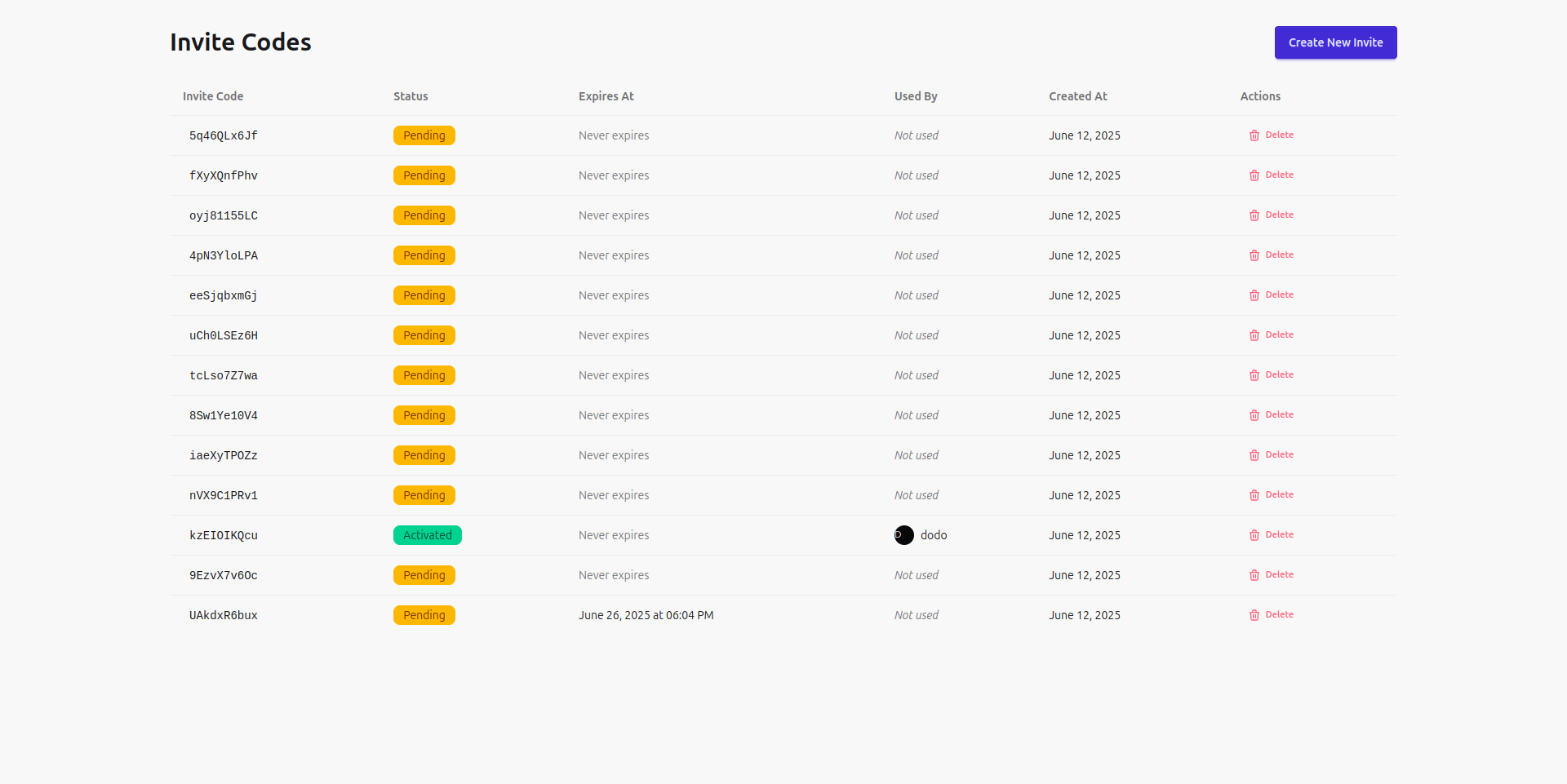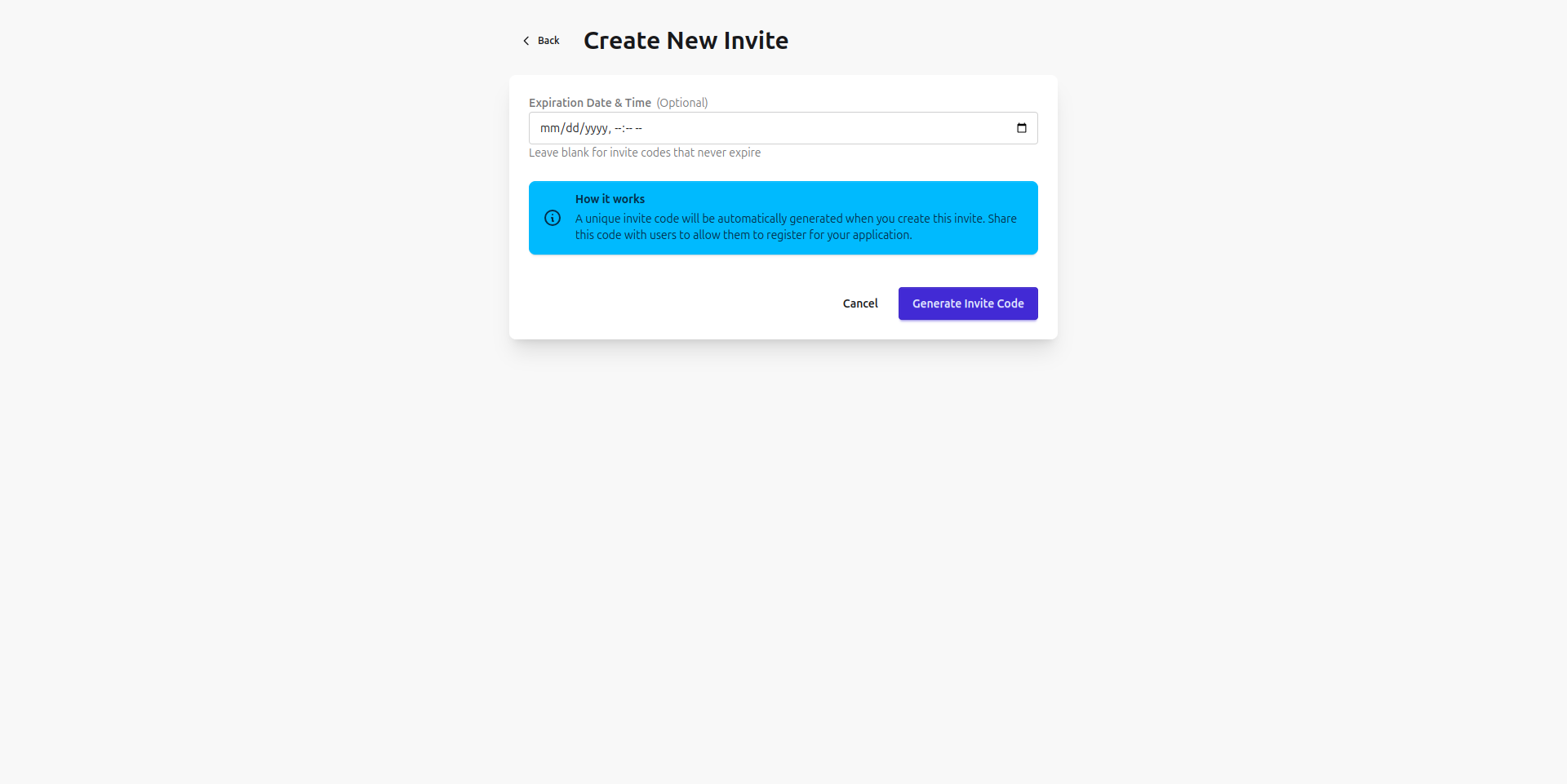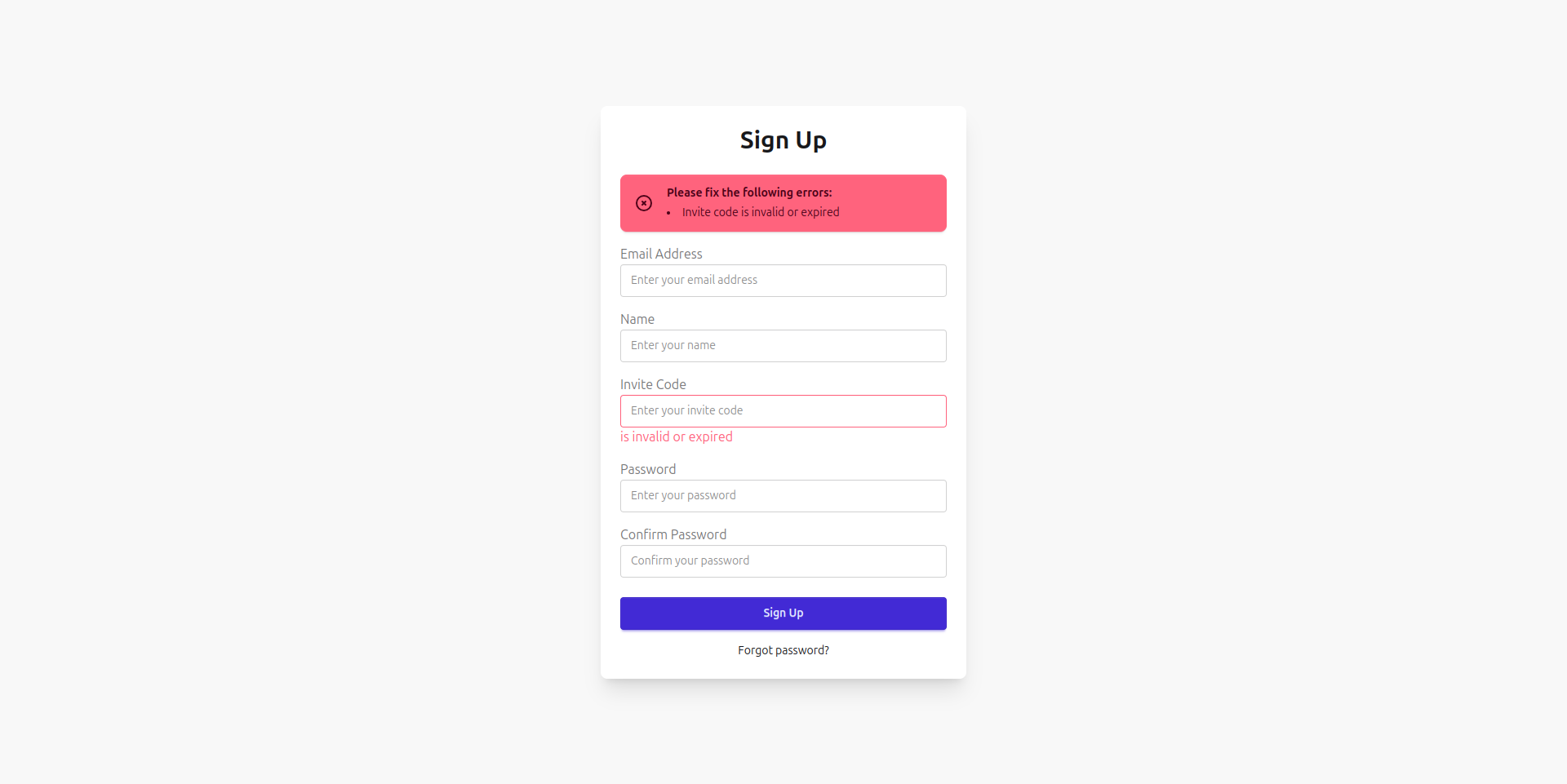Building an invitation solution in Rails 8
How I added an invitation solution to the built in rails 8 authentication solution so sign ups require an invitation code.
Introduction
I’m soon deploying Artifacts, an LLM chat application designed to accelerate creative work through pre-defined prompts called Stencils. But what I do not want to deal with is uncontrollable user sign ups, so I thought the solution to implement would be an invitation system.
Problem
Allowing open registrations for Artifacts would lead to a flood of database writes, likely overwhelming a small virtual server, especially with limited RAM. Beyond infrastructure, I’d face the complex task of batching chat interactions and persisting them efficiently; a significant development overhead I prefer to sidestep. My core goal is to provide flexible LLM access, and an invitation system offers a clean solution to these scaling and complexity concerns.
The Code
Migrations and Initial Models
I started by defining the Invites model. After a few iterations, this is how the table in my schema looks:
1
2
3
4
5
6
7
8
9
10
11
12
#schema.rb
create_table "invites", force: :cascade do |t|
t.string "invite_code", null: false
t.integer "created_by_id", null: false
t.integer "used_by_id"
t.datetime "expires_at"
t.datetime "created_at", null: false
t.datetime "updated_at", null: false
t.index ["created_by_id"], name: "index_invites_on_created_by_id"
t.index ["invite_code"], name: "index_invites_on_invite_code", unique: true
t.index ["used_by_id"], name: "index_invites_on_used_by_id"
end
The invite_code is a required, unique string. created_by_id links the invite to the admin who generated it, while used_by_id is an optional foreign key for the user who redeems it. Finally, expires_at provides an optional expiry date for the code.
Here’s how the User and Invite models interact:
1
2
3
4
5
6
7
8
9
# app/models/user.rb
class User < ApplicationRecord
# ... code hidden for brevity
has_many :invites, foreign_key: :created_by_id
has_one :used_invite, class_name: "Invite", foreign_key: :used_by_id
attr_accessor :invite_code
validate :invite_code_must_be_valid, on: :create
after_create_commit :mark_invite_as_used
end
1
2
3
4
5
6
7
8
9
10
11
12
13
14
15
16
17
18
19
20
21
22
23
24
25
26
27
28
29
30
31
32
33
34
35
36
37
# app/models/invite.rb
class Invite < ApplicationRecord
belongs_to :admin, class_name: "User", foreign_key: :created_by_id
belongs_to :user, class_name: "User", optional: true, foreign_key: :used_by_id
before_validation :generate_code, on: :create
before_destroy :ensure_destroyable
validates :invite_code, presence: true, uniqueness: true
validates :created_by_id, presence: true
validate :expires_at_must_be_future, if: -> { expires_at.present? }
def active?
used_by_id.nil? && (expires_at.nil? || expires_at.future?)
end
def self.valid_code?(code)
find_by(invite_code: code)&.active?
end
private
def generate_code
self.invite_code = SecureRandom.alphanumeric(10) if invite_code.blank?
end
def expires_at_must_be_future
errors.add(:expires_at, "must be in the future") if expires_at <= Time.current
end
def ensure_destroyable
if used_by_id.present?
errors.add(:base, "Cannot delete invite code that has been used by a registered user")
throw(:abort)
end
end
end
The Business Logic
Invites
The Invite model handles the core invite logic. A before_validation callback, generate_code, automatically creates a 10-character alphanumeric code. The active? method checks if an invite is valid for use; it must be unused, and unexpired. For convenience, self.valid_code? provides a quick check for an invite’s validity. A before_destroy callback, ensure_destroyable, prevents deletion of any invite that has already been used, maintaining data integrity.
You could argue that generate_code should be in a loop to handle duplicate invite codes, but the chances of that is very small and I am not writing a loop. The admin which is ME can just click generate code again.
User Registration with Invites
Integrating the invite system into user registration involved changes to both the User model and RegistrationsController.
In the User model, I used attr_accessor :invite_code to allow the invite code to be passed during registration without a dedicated database column. A custom validation, invite_code_must_be_valid, checks the submitted code, ensuring it’s active and valid before a new user is created. If the code is invalid, registration fails.
1
2
3
4
5
6
7
8
9
10
11
12
13
# app/models/user.rb (continued)
# ...
def invite_code_must_be_valid
unless Invite.valid_code?(invite_code)
errors.add(:invite_code, "is invalid or expired")
end
end
def mark_invite_as_used
@invite = Invite.find_by(invite_code: invite_code)
return unless @invite && persisted?
@invite.update!(used_by_id: id)
end
After a user successfully registers, the after_create_commit :mark_invite_as_used callback updates the invite, linking it to the new user and deactivating it for future use.
Controller Logic
The InvitesController manages all aspects of invite codes:
1
2
3
4
5
6
7
8
9
10
11
12
13
14
15
16
17
18
19
20
21
22
23
24
25
26
27
28
29
30
31
32
33
34
35
36
37
38
39
40
# app/controllers/invites_controller.rb
class InvitesController < ApplicationController
before_action :authorize_admin
def index
@invites = Current.user.invites
end
def new
@invite = Current.user.invites.new
end
def create
@invite = Current.user.invites.new(invite_params)
if @invite.save
redirect_to invites_path
else
render :new, status: :unprocessable_entity
end
end
def destroy
@invite = Invite.find(params[:id])
@invite.destroy!
redirect_to invites_path, notice: "Invite code was successfully deleted."
rescue ActiveRecord::RecordNotDestroyed
redirect_to invites_path, alert: @invite.errors.full_messages.join(', ')
end
private
def invite_params
params.expect(invite: [ :expires_at ])
end
def authorize_admin
return if Current.user.account_type_admin?
redirect_to root_path, alert: "Not found."
end
end
Access to InvitesController actions is restricted to admin users via a before_action :authorize_admin. This ensures only authorized personnel can generate and manage invites. The index action displays all invites created by the current admin. new and create handle invite generation, with error handling for invalid submissions. The destroy action allows admins to delete unused invites, providing clear feedback if a used invite is targeted.
The RegistrationsController was also updated:
1
2
3
4
5
6
7
8
9
10
11
12
13
14
15
16
17
18
19
# app/controllers/registrations_controller.rb
class RegistrationsController < ApplicationController
# ...
def create
@user = User.new(registration_params)
if @user.save
start_new_session_for @user
redirect_to root_path, notice: "Successfully signed up!"
else
render :new, status: :unprocessable_entity
end
end
private
def registration_params
params.require(:user).permit(:name, :email_address, :password, :password_confirmation, :invite_code)
end
end
The key change here is in registration_params, which now permits the invite_code field, allowing it to be processed during user creation.
User Interface
For administrators, the invite management page presents a clear overview of all generated codes, showing their status, expiry, and redemption details. There’s an easy way to create new invites and delete unused ones.
The invite creation form focuses on simplicity, allowing administrators to set an optional expiration date. An informational note explains that codes are automatically generated.
On the user registration side, the sign-up form now includes a dedicated “Invite Code” field. Validation errors are clearly displayed both generally and for specific fields, guiding users to correct any issues, including an invalid or expired invite code.
Routing
To tie it all together, I defined the routes:
1
2
3
4
5
6
7
# config/routes.rb
Rails.application.routes.draw do
# ... existing routes
resource :registration, only: [:new, :create]
resources :invites, only: [ :index, :new, :create, :destroy ]
# ... other routes
end
Using resources :invites automatically sets up the necessary RESTful paths, making the invite management accessible.
Conclusion
This invitation system for Artifacts addresses the requirements that I need which is controlled user sign ups. The implementation delivers admin oversight and a smooth, guided entry for new users, allowing Artifacts to grow deliberately while ensuring resource stability.


